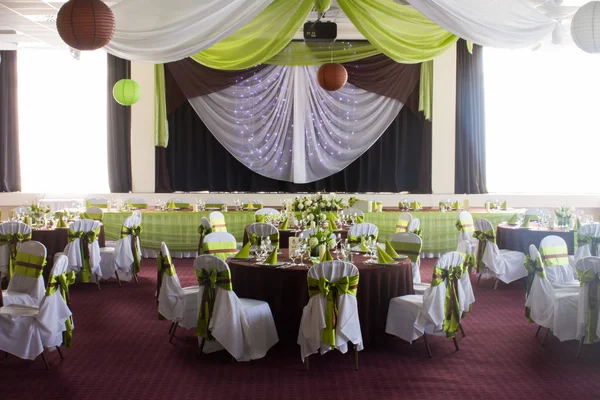Are you wondering if establishing an event management business handling your customers logistics, decor, catering, and entertainment can make you money?
The global event management industry is valued at over $500 billion annually, highlighting its importance as a contributor to economic growth worldwide. In Kenya the industry was valued at approximately KES 30 billion in 2023, reflecting a shift in consumer behavior towards hiring professional event planners. This growth is fueled by an increasing number of celebratory events such as weddings, graduations, corporate functions, and social gatherings.
This comprehensive guide will provide potential investors and existing businesses with detailed insights on how to start and run a successful event management business in Kenya.
Understanding the Event planning Market
In Kenya, the increasing number of planned events has created a demand for skilled professionals who can handle logistics, decor, catering, and entertainment. the event planning market is diverse, encompassing various types of events. Some of the most profitable events you can target an investor include;
- Weddings: This segment remains the most lucrative, with couples and families willing to spend significantly on making their special day memorable. The average cost of a wedding in urban areas can range from KES 500,000 to KES 2 million, depending on the scale and extravagance.
- Corporate Events: Includes conferences, product launches, and team-building exercises. Corporations often allocate substantial budgets for these events, sometimes exceeding KES 1 million.
- Social Gatherings: Events like baby showers, birthday parties, graduations and anniversaries also contribute significantly to the market. The average spending for such events can range from KES 50,000 to KES 300,000.
Emerging Market Trends in Event Management Business
- Increased Personalization: Clients are increasingly seeking personalized experiences that reflect their unique tastes and preferences. This trend requires event planners to be creative and flexible in their offerings.
- Sustainability: There is a growing demand for eco-friendly events. Clients are looking for sustainable options such as biodegradable decor, locally sourced catering, and minimal waste practices.
- Technology Integration: The use of technology in event planning is on the rise. Virtual events and hybrid models (combining in-person and virtual participation) have become popular due to the COVID-19 pandemic.
How to start an event planning Business
Market Research
Conducting a thorough market research is advised before launching your event management business. It will help you to understand your target audience’s preferences and analyze competitors to identify gaps in the market that your business could fill. Use surveys, observation, focus groups, and social media analytics to gather insights about potential clients.
Kenya’s major cities like Nairobi, Mombasa, and Kisumu are hubs for events, but smaller towns also have untapped potential. Rural areas might require affordable solutions that balance cost and quality.
Create a Business Plan
A well-structured business plan serves as a roadmap for your event management business. Key components should include:
- Executive Summary: A brief overview of your business concept.
- Market Analysis: Insights into industry trends and target demographics.
- Marketing Strategy: How you plan to attract clients.
- Financial Projections: Estimated startup costs, revenue forecasts, and funding sources.
- Operational Plan: Day-to-day operations and logistics.
Financial Planning
Estimate your startup costs carefully. This includes expenses for equipment (tents, chairs, decor), marketing efforts, licenses, insurance, and initial operational costs.
Sample Startup Costs Breakdown:
| Item | Estimated Cost (KES) |
|---|---|
| Office Space Rental | 10,000 – 30,000 |
| Equipment (Tents/Chairs) | 200,000 – 500,000 |
| Decor Items | 50,000 – 100,000 |
| Marketing & Branding | 20,000 – 50,000 |
| Licenses & Permits | 5,000 – 15,000 |
| Insurance | 10,000 – 30,000 |
| Miscellaneous Expenses | 20,000 |
| Total Estimated Cost | Ksh. 325,000 – Ksh. 755,000 |
Having a detailed financial plan will help you secure funding from investors or banks.
Choose an Appropriate Business Structure
Decide on the legal structure of operating your business—sole proprietorship, partnership, or limited liability company (LLC). Each structure has different implications for liability and taxes. Consulting with a legal expert can help you choose the best option for your situation.
Register Your Business
Register your business with the national and local authorities to obtain necessary licenses and permits. This may include general business licenses and specific permits related to event management. others include tax or KRA PIN number among others.
Required Licenses:
- Business License: Required by local authorities.
- Public Performance License and NEMA license: If you plan to host events with live music or entertainment.
- Health Permits: Necessary if food will be served at events.
Insure your Business
Protecting your business with appropriate insurance is a step most incestors overlook. It can indemnify your business incase of an unforeseen risks. Some of the insurance premiums to consider obtaining are;
- General Liability Insurance: Covers claims of property damage or personal injury.
- Professional Liability Insurance: Protects against claims of inadequate services or negligence.
- Workers’ Compensation Insurance: Necessary if you employ staff.
Setting Up your Event Management Business Operations
Location and Workspace
Depending on your budget, you can either rent an office space or operate from home initially. Ensure that you have adequate storage for equipment like tents and chairs.
Equipment Acquisition
Invest in essential equipment for your events:
- Tents: Various sizes for different types of events (e.g., weddings vs. corporate functions).
- Chairs and Tables: Folding chairs and tables are versatile options that can be easily transported.
- Decor Items: Linens (tablecloths), centerpieces (floral arrangements), lighting fixtures (fairy lights or spotlights), etc.
- Audio/Visual Equipment: Sound systems (speakers), microphones for speeches or announcements, projectors for presentations or slideshows.
Technology Tools
Utilize event management software to streamline operations. These tools can help with budgeting (tracking expenses), guest lists (RSVP management), scheduling (timelines), and communication with vendors.
Building a Network
Establish relationships with reliable vendors such as caterers, florists, photographers, entertainers (musicians/DJs), venue owners/managers. A strong network allows you to offer comprehensive packages to clients while ensuring quality services.
Tips for Building Vendor Relationships:
- Attend industry trade shows or expos where vendors showcase their services.
- Join local business associations or chambers of commerce to connect with other professionals.
- Collaborate on promotional events or workshops that benefit both parties.
Negotiating Contracts
When working with vendors:
- Negotiate contracts that benefit both parties; ensure terms are clear regarding payment schedules (deposits vs. final payments), service expectations (delivery times), cancellation policies (refunds).
Marketing Your Event Management Business
@touch.of.flair.ev table set up by touch of flair events
♬ original sound – touch of flair events
Branding
Create a strong brand identity such as reflects the quality of your services. Develop a professional logo and website that showcases your portfolio of past events as showcased by the Touch of Flair events kenya on their Facebook page.
Key Elements of Branding:
- Consistent Visual Identity: Use consistent colors/fonts across all marketing materials.
- Unique Selling Proposition (USP): Clearly define what sets your services apart from competitors.
- Testimonials: Feature client testimonials prominently on your website/social media platforms.
Online Presence
Leverage social media platforms like Facebook, Instagram, LinkedIn to promote your services:
- Share high-quality images/videos from events you’ve managed; consider creating behind-the-scenes content showcasing planning processes.
- Utilize hashtags relevant to the Kenyan event industry (#KenyaEvents #WeddingPlannerKE).
Networking Events
Attend industry-related networking events to connect with potential clients and other professionals in the field:
- Participate in bridal fairs or corporate expos where you can showcase your services directly to interested clients.
- Host workshops/seminars on event planning tips; this positions you as an expert while generating leads.
Delivering Exceptional Service
Client Consultation
Start every project with a detailed consultation to understand the client’s vision/expectations:
- Prepare questionnaires covering aspects like budget constraints/preferences regarding themes/styles.
- Offer suggestions based on experience while respecting their ideas—this builds trust!
Attention to Detail
Ensure every aspect of the event is meticulously planned—from venue selection/decor setup:
- Create checklists for each stage leading up to an event; this helps avoid oversight during busy periods leading up to the big day!
- Conduct site visits prior to events; assess logistics such as parking availability/electrical outlets needed for AV equipment setup.
Post-Event Follow-Up
After each event:
- Follow up with clients for feedback; this not only shows professionalism but also provides insights into areas for improvement.
- Request reviews/testimonials which can be used in future marketing efforts!
Pricing Your Services
Setting Competitive Rates
Determine how you will charge clients—flat fees or percentages based on total event budget:
- Research competitors’ pricing models; ensure yours is competitive yet profitable—consider offering tiered packages based on service levels provided!
- Factor in all costs associated when determining final pricing—include labor costs incurred during setup/breakdown phases!
Transparent Pricing Structure
Be transparent about what clients can expect regarding costs. Provide detailed quotes outlining all services included in price—this helps manage client expectations while avoiding misunderstandings later!
Scaling Your Event Management Business
Expanding Services
As your business grows:
- Consider expanding service offerings—event design services (theming) catering options (full-service catering) entertainment booking (musicians/DJs).
- Explore partnerships with complementary businesses—such as photography/videography firms—to offer bundled packages!
Hiring Staff
When demand increases beyond what you can handle alone:
- Consider hiring additional staff/freelancers; this allows you to take on more projects simultaneously without compromising quality!
- Train new hires thoroughly—ensure they understand company values/standards expected when working directly with clients!
Challenges in Event Management
Despite its potential profitability:
- Competition; The market is becoming increasingly saturated; differentiating your services through unique offerings/exceptions customer service is crucial!
- Economic downturns can lead reduced spending on events; planners must be adaptable/offer budget-friendly options without compromising quality!
- High operational costs related equipment maintenance staffing needs during peak seasons can eat into profits if not managed effectively!
- Client expectations: Managing client expectations can be challenging; clear communication throughout planning process helps mitigate misunderstandings!
- Logistical challenges: Coordinating multiple vendors for an event can be complex; effective project management skills are essential for smooth execution!
Networking as a Competitive Advantage
Building strong networks within the industry significantly contributes competitive advantage in event management ventures (EMVs). Research indicates that networking capabilities—such as coordination skills internal communication efficiency relational skills partners—are vital success this field . By engaging actively networking activities:
- You can turn connections into profitable relationships!
- Establish partnerships enhance service offerings!
- Gain access exclusive deals suppliers improve cost efficiency!
Conclusion
Starting an event management business in Kenya presents an exciting opportunity for entrepreneurs who are passionate about creating memorable experiences while tapping into a growing market driven by social celebrations/corporate events! By understanding market dynamics through thorough research developing solid business plan tailored towards client needs establishing strong vendor relationships will set you on path toward success vibrant industry!
As you embark on this journey:
- Stay committed continuous learning about market trends!
- Build strong relationships within industry through networking!
- Focus delivering quality service exceeds client expectations!
With dedication strategic planning—your event management business can flourish amidst Kenya’s vibrant celebration culture! Embrace challenges ahead; your success story begins now!
FAQS in running an Event Management Business
Is Event Management Business Profitable in Kenya?
Yes, event management can be highly profitable in Kenya if approached strategically. The industry benefits from repeat clients and word-of-mouth referrals, which reduce marketing costs over time. The profitability largely depends on:
- Target Market: Corporate events and weddings tend to have higher budgets than personal celebrations like birthdays.
- Operational Efficiency: Leveraging strong vendor networks and streamlined processes helps cut costs.
- Service Range: Offering additional services like decor, catering, and entertainment increases your earning potential.
Typical revenue margins for a well-managed event can range between 20% to 40% of the total event budget. High-demand periods, such as the December festive season, can yield even higher profits.
How can I Make Extra Money in Event Management Business?
- Offer Comprehensive Packages
Bundle services such as venue sourcing, decor, catering, and entertainment into attractive packages. Clients often prefer a one-stop solution, and bundling can justify higher pricing. - Specialize in High-Value Events
Focus on events with larger budgets, such as corporate conferences, destination weddings, and government functions. These events often require meticulous planning and are willing to pay for premium services. - Upsell and Cross-Sell
- Upsell premium decor options, custom designs, or additional entertainment features.
- Cross-sell related services like photography, live streaming, or luxury transportation.
- Reduce Costs Through Partnerships
Negotiate discounts with vendors based on long-term relationships. Bulk purchasing of supplies like decor items and tents can lower operational costs. - Leverage Technology
Use event management software to enhance efficiency in budgeting, scheduling, and client communication. Efficient operations save time and reduce costs, improving overall profit margins. - Focus on Repeat Business
Build strong client relationships to secure recurring contracts, especially with corporate clients who frequently organize events. - Market During Peak Seasons
- Weddings and end-year celebrations peak in November through December.
- Focus marketing campaigns around these high-demand periods to maximize bookings.



